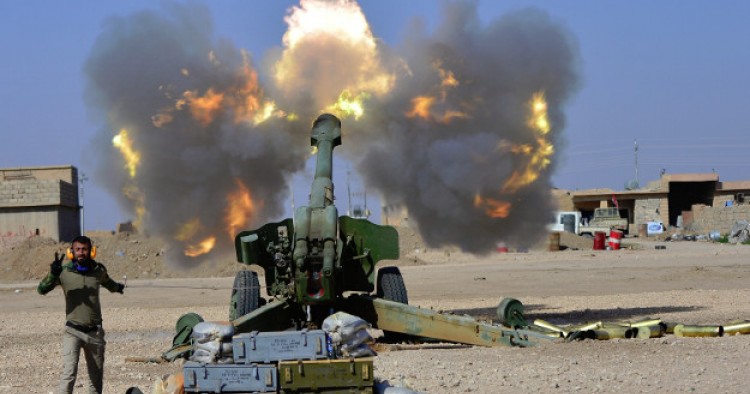The Popular Mobilization Forces – the Iraqi paramilitary forces also known by its Arabic name Hashd al-Shaabi – will not be disbanded after the fight against the Islamic State is over and will remain a key player in Iraq, the alliance’s security spokesman said on Sunday. “Hashd al-Shaabi is an official military organization affiliated with the government of Iraq. Like other government security agencies, they will continue their regular activities after the end of Daesh [Islamic State], Youssel al-Kelabi told Tasnim News Agency, which is affiliated with the Islamic Revolution Guards Corps (I.R.G.C.). The P.M.F. commander also stressed that there was no need for American troops in Iraq as “the Iraqis can alone recapture their territory from terrorists.” He added: “We have a special view of the Americans and have a great deal of experience in dealing with them. Therefore, [Iraqi Prime Minister] Haider al-Abadi, the chief commander of the armed forces, respects our view. We have never participated in any joint operations with the coalition forces. In our operations, we use the support of the Iraqi air force.”
Kelabi emphasized that the paramilitary forces “have emerged from within the Iraqi nation” and that the “dissolution of the Hashd al-Shaabi is not possible under any circumstances.” He credited the militia forces for reclaiming parts of Iraq from the Islamic State and empowering the Baghdad government. He further pointed that the Iraqi parliament has made the paramilitary forces an integral part of the Iraqi security forces and stressed that “only the people of Iraq has the right to disband it.”
According to Kelabi, the P.M.F. at present is focusing on capturing and controlling regions along the Syrian border.
Comment: With the fall of Mosul, the future role of the Iraqi paramilitary forces has become a heated topic of discussion inside and outside Iraq. While some Sunni and Shiite leaders inside Iraq and Sunni regional states call for the paramilitary forces to be disbanded after the battle against the Islamic State is over, Iran has made it clear that it opposes the move and sees the P.M.F. as a crucial instrument to continue to influence Iraqi politics and security in the future. When Iraqi Prime Minister Haider al-Abadi visited Tehran last month, Iran’s Supreme Leader Ali Khamenei urged him not to dissolve the P.M.F. and not to rely on Washington. “Do not trust the Americans under any circumstances because they are waiting for an opportunity to do harm,” Khamenei said in a meeting with Abadi.
To Tehran’s dismay, Muqtada al-Sadr, a prominent Iraqi Shiite leader, recently called for the disbandment of the P.M.F., which has more than 100,000 troops dominated by Iran-backed Shiite militia units. What may have particularly worried Tehran is that Sadr – who studied in Iran and spent years there while his militias were fighting American troops after the 2003 invasion – made the remarks after returning from Saudi Arabia, where he held meetings with Saudi Crown Prince Mohammad bin Salman and other senior officials.
The Middle East Institute (MEI) is an independent, non-partisan, non-for-profit, educational organization. It does not engage in advocacy and its scholars’ opinions are their own. MEI welcomes financial donations, but retains sole editorial control over its work and its publications reflect only the authors’ views. For a listing of MEI donors, please click here.













